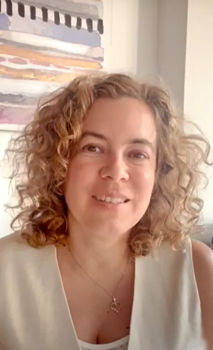Ovarian stimulation for egg freezing
A friendly, straightforward guide to how stimulation works, how your ovaries are monitored, and how experts adjust everything to protect egg maturity and quality.
Why ovarian stimulation matters
Egg freezing works best when several mature eggs can be collected in one cycle. Stimulation medications gently encourage the ovaries to produce more than the single egg your body usually prepares each month.
This step is essential because your future chances depend a lot on the number of good quality eggs you freeze now. It is not about rushing through a cycle. It is about doing it right, at the right pace for your body.
If you are just starting to explore the process, you might like to first read the general page on egg freezing to see how stimulation fits into the bigger picture.
Each stimulation plan is designed and supervised personally by Dr. Alejandro Castillo Peláez, our lead fertility specialist in Mexico City.
Key points
- Stimulation helps your ovaries produce multiple eggs in one cycle, which increases your future chances.
- Monitoring allows your medication plan to adapt to the way your body responds.
- Good stimulation supports egg quality before vitrification and storage.
How stimulation is monitored
Monitoring is what keeps your egg freezing cycle safe, predictable and efficient.
Two tools guide the process: ultrasounds and blood tests. Many patients tell us that this is the part that makes them feel more relaxed, because they can actually see what is happening inside their own body.
Ultrasounds
Transvaginal ultrasounds allow the medical team to measure each follicle, which is the fluid filled structure that contains the egg.
As the follicles grow and reach a certain size range, this indicates that the eggs are approaching maturity. These measurements are one of the main guides to choose the right timing for the egg retrieval procedure.
Hormone tests
Blood tests measure hormones such as estradiol and LH. These results show how active the follicles are and whether the body is reacting calmly or too strongly to the medication.
When ultrasound findings and hormone values move in the same direction, the cycle is usually stable and easier to predict.
Medication adjustments during stimulation
No two ovaries behave in exactly the same way. That is why a good egg freezing program does not rely on a rigid, one size fits all plan.
Some women need higher doses to encourage steady follicle growth. Others respond very quickly and require a gentle reduction to avoid overstimulation.
The combination of ultrasound images, hormone levels and clinical experience is what guides Dr. Castillo in fine tuning the protocol so that it fits your body rather than forcing your body to fit the protocol.
Choosing the right moment for egg retrieval
The goal of stimulation is not only to grow follicles. The real objective is to reach a window where the eggs are mature, but not overexposed to stimulation.
When follicle sizes and hormone levels indicate that this window has been reached, the trigger medication is scheduled. Egg retrieval follows shortly afterward, in a planned and controlled way.
If you want to see what happens on the day of the procedure, you can continue reading on our page about the egg retrieval process for egg freezing.
Medications used during ovarian stimulation
The exact combination of drugs can vary from one patient to another, but the goal is always the same. Support the growth of several follicles in a controlled and safe way.
Follicle stimulating medications (FSH and similar)
- These injections stimulate the ovaries so that several follicles grow at the same time.
- Dose is adjusted based on your age, ovarian reserve and how you respond on scans and blood tests.
- Most women give themselves these injections at home after clear instructions from the team.
Medications to prevent early ovulation
- Other drugs are added later in the cycle to prevent your body from releasing the eggs too early.
- They help keep the follicles stable until egg retrieval is scheduled.
Trigger shot
- The trigger shot is given when the follicles have reached the right size and maturity.
- It prepares the eggs for retrieval at a very specific time window.
What the stimulation phase feels like day by day
Most patients handle stimulation better than they expect. It is normal to feel a bit nervous before starting, so knowing what a typical cycle looks like can help you feel more in control.
Early days of stimulation
- You start daily injections following a schedule agreed with your doctor.
- You may feel similar to a normal cycle or slightly more bloated.
- The first ultrasound is usually scheduled after a few days to see how many follicles are waking up.
Middle of the cycle
- Follicles grow more quickly and ultrasounds become more frequent.
- You might feel your ovaries, especially when walking or exercising.
- Blood tests are used to check that hormone levels match what we see on screen.
Approaching the trigger and retrieval
- Your team will talk with you about the likely day for the trigger shot so you can plan around it.
- Bloating and heaviness in the lower abdomen are common at this point.
- Once the trigger is given, the exact timing of the egg retrieval is set.
Common questions about stimulation and egg freezing
There are a few questions that almost every patient asks at some point. It is completely normal to want very concrete answers before you commit to a cycle.
Is stimulation painful?
- Most women describe the injections as uncomfortable rather than painful.
- The main physical sensations are bloating and heaviness in the lower abdomen.
Does stimulation affect my long term fertility?
- Evidence shows that stimulation uses follicles that your body would have lost in that cycle anyway.
- It does not make you run out of eggs faster.
What happens after stimulation?
- Eggs are collected during the retrieval and then prepared for vitrification and storage.
- Our page on egg freezing success rates explains how age and egg count translate into real future chances.
🙌 You're not alone — we’re here to guide you
Whether you're comparing clinics, navigating your options, or trying to understand what the next step should be, having clear medical guidance truly makes a difference.
Every patient who reaches out speaks directly with Dr. Alejandro Castillo Peláez or his international coordinator, Michaël — so your questions are answered by the people who are actually involved in your care.
Our role is simple: to help you access safe, transparent and personalized fertility treatment in Mexico, without overwhelm or guesswork.
Meet Dr. Alejandro Castillo Peláez
Dr. Castillo Peláez would like to connect with you for a consultation.
👇🏼 Book a consultation
Get answers to all your questionsabout fertility treatments in Mexico.
Thank you. We'll get in touch with you soon.

and reproductive biologist
Patient stories and testimonials
Read the great reviews from patients who have been fortunate enough to have Dr. Alejandro Castillo as their fertility specialist.









